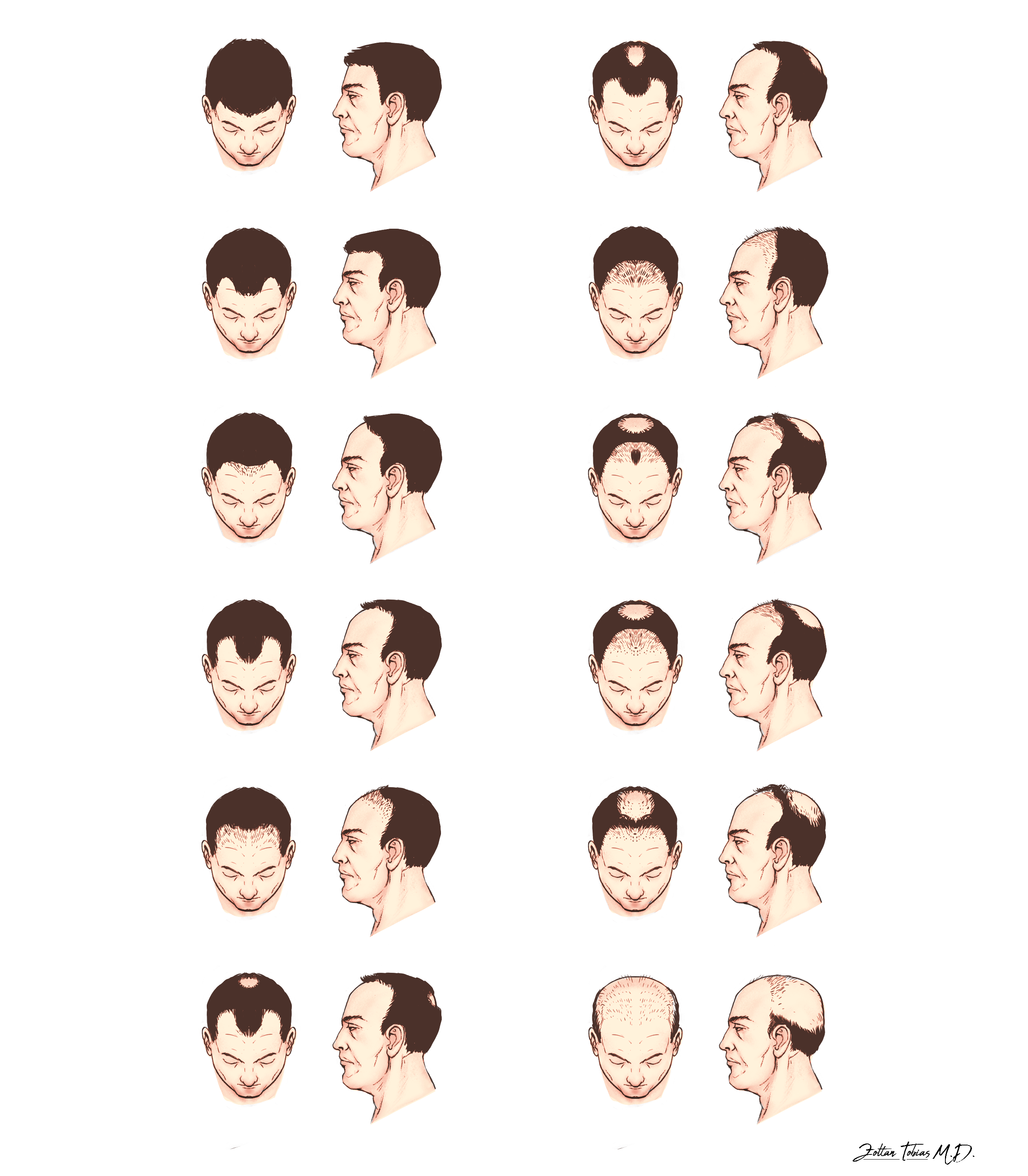What is male pattern hair loss (androgenic alopecia)?
The most common types of hair loss in men are a receding hairline on the forehead and hair loss on the crown of the head. Typically, the hair loss affects only the scalp and occurs gradually. All men are affected by some degree of hair loss as they age. About one in two men in their forties have clear signs of baldness. Although most men can cope with the hair loss, it can affect your body image and how satisfied you are with your body.
What causes male pattern hair loss and how is it related to male sex hormones?
Male pattern hair loss often runs into the family and can be inherited from parent to son. The genes that are believed to be responsible for the hair loss make the hair follicles more sensitive to dihydrotestosterone (DHT), which is an androgen (male sex hormone). DHT has an impact on the growth phase of the hair, eventually leading to shorter, thinner and fewer hairs.
Do hair loss treatments affect male sex hormones?
Some drugs that are used to treat male pattern hair loss work by decreasing the production of DHT. Examples are finasteride and dutasteride. This type of drugs is called 5-alpha-reductase inhibitors, as they inhibit the enzyme that converts testosterone to DHT. These drugs do not lower your testosterone level. Management of androgenic alopecia can also be hair transplantation or accepting that it is part of normal ageing. There is no evidence that vitamins or dietary supplements can slow down or prevent the hair loss.
Do these treatments affect male sexual health?
Some men who are taking 5-alpha-reductase inhibitors experience breast development (gynaecomastia). These drugs can potentially mask early signs of prostate cancer. Other reported side effects of 5-alpha-reductase inhibitors are erectile dysfunction, lower libido or depression. Usually, these side effects disappear after stopping the medication. In some men, sexual dysfunction and psychological symptoms may persist after stopping the drug (“post-finasteride syndrome”). It is still controversial if the reported sexual and psychological symptoms are only related to taking this type of drugs in the past, as there is no known biological mechanism to explain this relationship. To date, there are no clear criteria to diagnose this syndrome and there is no specific treatment.





















